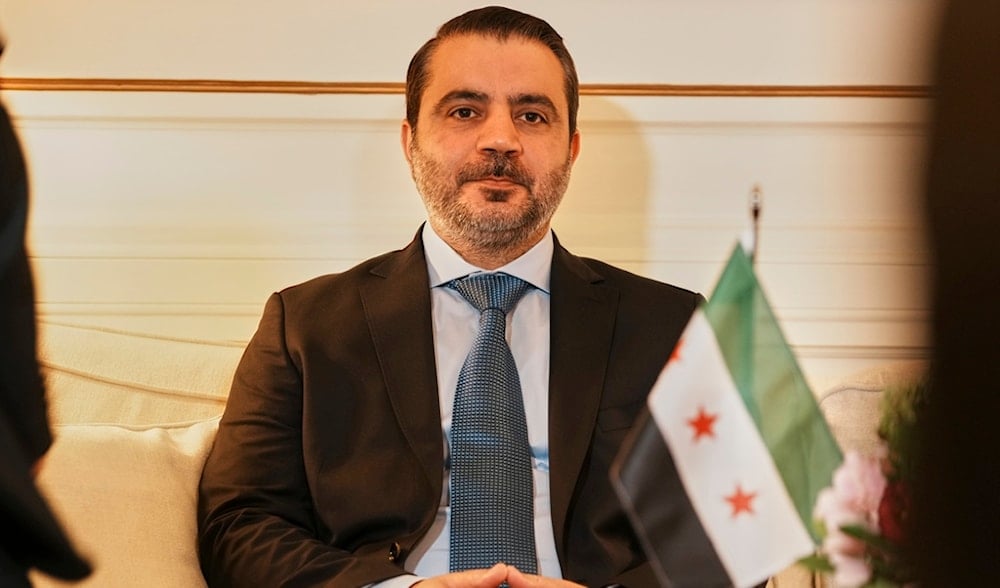Syria, Russia in talks to review military base agreements: Al-Shaibani
Syria's transitional government is negotiating with Russia to reassess existing military base agreements and redefine bilateral cooperation to reflect the country's new political realities.
-

Syrian Foreign Minister Asaad al-Shaibani meets with his Greek counterpart George Gerapetritis in Athens, Greece, Wednesday, Aug. 20, 2025 (AP Photo/Thanassis Stavrakis)
Syria's transitional Foreign Minister Asaad Al-Shaibani announced on Saturday that Damascus is holding extensive discussions with Moscow to reassess earlier bilateral accords, while confirming that no new agreements have been finalized.
"There are no agreements at this time. We have not yet reached any new ones. The main point of any talks with Russia is to review the old agreements," Al-Shaibani said in an interview with state broadcaster Al Ikhbariya.
He clarified that the talks include the status of Russian military installations in Syria, which have been central to Moscow's regional influence since its intervention in 2015. "Russian bases in Syria are the subject of negotiations between Damascus and Moscow," he added.
Strategic Reassessment
The announcement comes shortly after interim President Ahmad al-Sharaa's visit to Moscow, where he met with Russian President Vladimir Putin to discuss the future of bilateral cooperation, regional stability, and the role of Russia's military bases. The meetings signaled the start of what both governments described as a "new historic phase" in relations, reflecting Syria's ongoing political transformation.
Among the facilities under review are the Hmeimim Air Base in Latakia and the Tartus Naval Facility on the Mediterranean coast, critical assets that grant Russia direct maritime access and the ability to project power across the Middle East and North Africa.
In previous statements, Russian Foreign Minister Sergey Lavrov said that Moscow's presence in Syria would continue only with the consent of Syrian authorities. He also noted that Russia's mission is evolving from military support to a broader focus on security and reconstruction, aligning with Syria's post-war priorities.
Recalibrating the Partnership
Officials in Damascus have indicated that the country's new leadership seeks to rebalance the terms of cooperation to reflect post-Assad realities. While a withdrawal of Russian forces is not under consideration, revisions to the legal, financial, and operational frameworks governing Russia's bases are reportedly being explored.
Syrian sources say the transitional government has requested assurances that Russia will not back remnants of the former regime and has asked for Russian assistance in rebuilding the national army and restoring critical infrastructure. Russia, in turn, has expressed readiness to support the rehabilitation of energy networks, railways, and facilities originally constructed during the Soviet era.
Regional and Geopolitical Implications
Maintaining its foothold in Syria remains strategically vital for Moscow, securing its access to the Mediterranean and ensuring leverage in regional affairs. For Damascus, continued Russian cooperation provides political backing and economic investment at a time of reconstruction and fragile recovery.
As the West intensifies efforts to expand normalization between "Israel" and Arab states, analysts warn that a reinforced Russian presence in Syria could further complicate Western strategies in the region, solidifying Moscow's position as a counterweight to US and European influence.
Read more: Israeli media: Syria, 'Israel' moving toward security deal

 3 Min Read
3 Min Read








